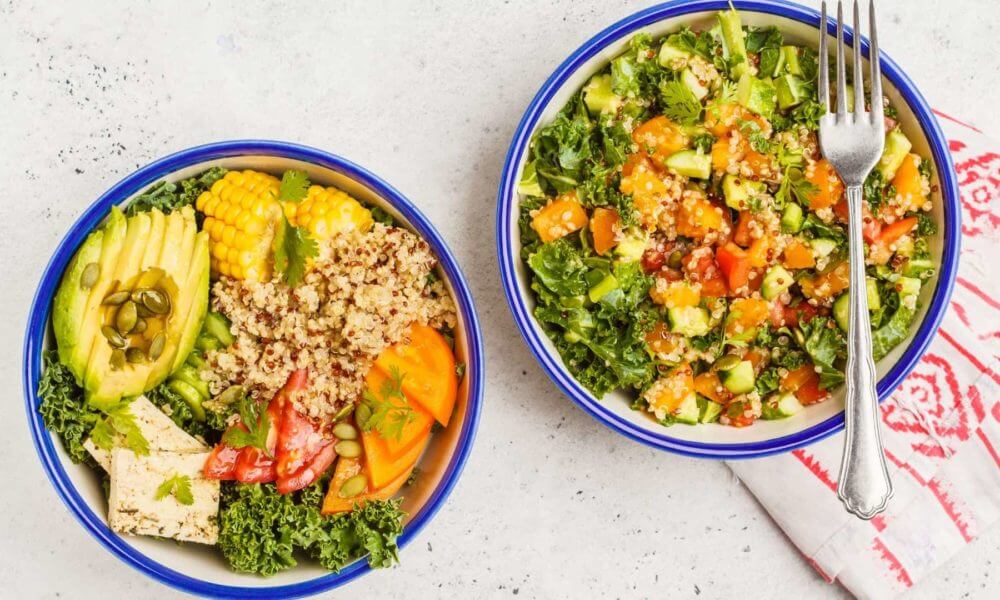South Africa Is Leading The Continent Into Vegan Lifestyle


The reason why some people take to a vegan lifestyle is diverse. For some, it has a religious or moral undertone. However, most environmentalists claim the growth of cattle for beef is overburdening the environment with methane. No matter what the reason may be, more South Africans are embracing vegetarian and vegan lifestyles. Consequently, there is a sprouting of vegan and vegetarian restaurants in Johannesburg. For Anesu Mbizvo, a medical doctor, the switch from lifelong omnivore to veganism was partly for health reasons. She said,
“Meat is full of saturated fat and saturated fat is a huge cardiovascular risk. It leads to heart attacks, strokes. It’s been implicated in diabetes as well. And your veggies and your fruit don’t have that. Or have very low levels of that. So I think in terms of that, if you’re eating the correct portion and you’re eating the right thing, then totally, a vegan lifestyle can definitely be healthier than a meat-based diet.”
According to Google Trends at the time of this report, South Africa is the 13th globally in searches for ‘vegan’. Thus, they are the only African nation to rank so high. Veganism entails cutting back on meat and animal-based products like honey, eggs, and dairy. There is no official count on the number of people promoting the vegan lifestyle. However, the first large-scale vegan and plant-based exposition—Vegan & Plant Powered Show—will hold in Cape Town this year.
What is the True Meaning of Veganism?
The South African Vegan Society says veganism is more than just diet but a way of life. This volunteer organization focuses on public outreach, distribution of resources as well as providing support for those that embrace a vegan lifestyle. To further stress that veganism is more than just food, the South African Vegan Society website cited the definition of the Vegan Society of the UK.
“The word ‘veganism’ denotes a philosophy and way of living which seeks to exclude — as far as is possible and practicable — all forms of exploitation of, and cruelty to, animals for food, clothing or any other purpose; and by extension, promotes the development and use of animal-free alternatives for the benefit of humans, animals, and the environment. In dietary terms, it denotes the practice of dispensing with all products derived wholly or partly from animals.” – Vegan Society of the UK definition of veganism.
Possible Impact of the Upcoming Exposition to South African Vegan Lifestyle
The Vegan & Plant Powered Show will hold in May 2020 at the CTICC in Cape Town. The founder of the show, Heidi Warricker said the exposition will be beneficial to the country. South Africa is one of the top consumers of beef, pork, veal, mutton, and poultry in the continent. This is according to the data from the Organization for Economic Co-operation and Development. However, Warricker says the target are those who are curious of a vegan lifestyle,
“Johannesburg came in at number 10 in a list of cities with the best range of vegan options. We are targeting the veggie-curious so we’re not looking to force people into diet changes, just to get people to think differently about what they eat.”
However, embracing a vegan lifestyle will not only hurt the economy of most African nations but also entail redefining family values. Meat is a vital part of celebrations and spirituality in South Africa. The wealth of many families is also defined by the size of their livestock. Mbivo’s father runs a cattle farm in Zimbabwe and employs many people in his community. Thus, cutting his meat business will hurt the livelihood of others. According to Mbivo,
“In African culture, a big part of a family’s net worth is their livestock. Their livestock define the wealth of a family. And so, when you slaughter an animal at a gathering, it’s seen as you giving of yourself. Whereas getting some vegetables from your veggie patch doesn’t really equate to the same amount of giving. I think that’s one of the barriers to veganism for people of African cultures.”







Responses